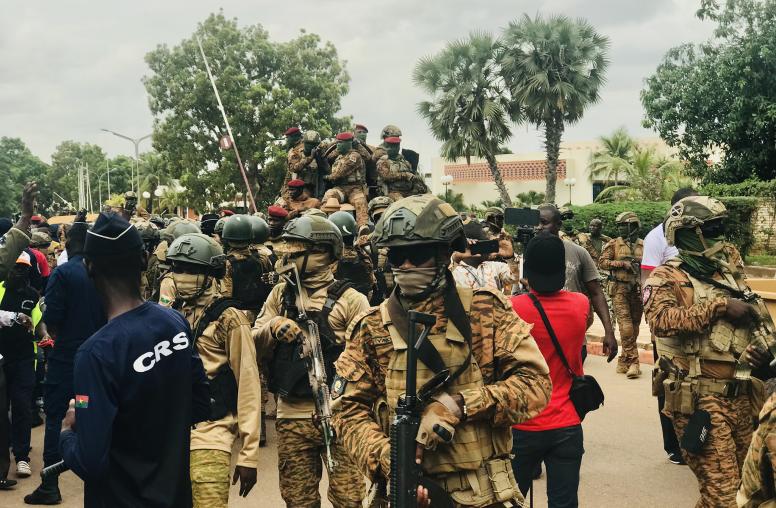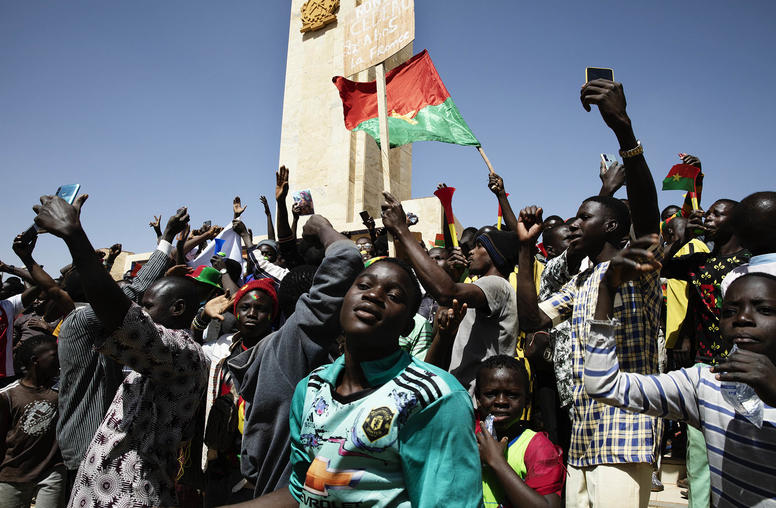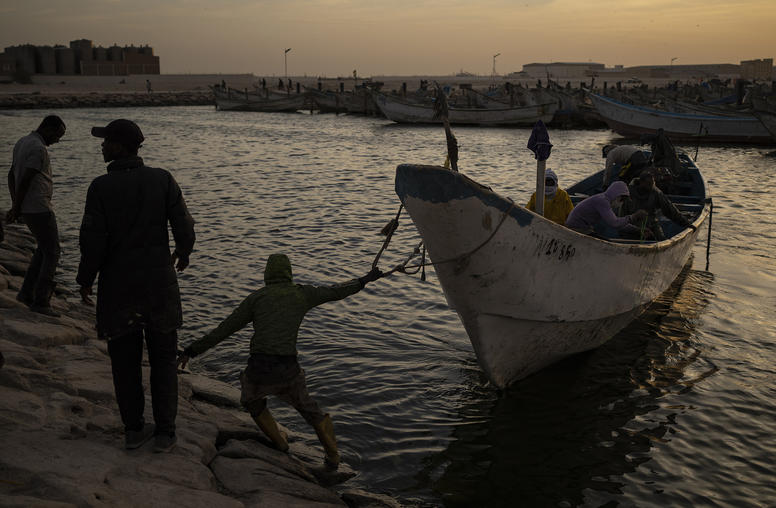U.N. Special Representative Calls for Greater Steps to End `Scourge’ of Sexual Violence in War
Speaking at a major conference held at USIP, former Sierra Leone policymaker and diplomat Zainab Hawa Bangura appealed for greater political will, public determination, and improved technical capacity to prevent and prosecute the “vile crime.” The effects of continued impunity devastate survivors and weaken a society’s ability to recover from war.

A United Nations secretary-general’s special representative called today for greater political will, public determination and improved technical capability to combat the “scourge” of sexual violence in conflict.
“It will take the work of everyone to help eradicate this vile crime,” Zainab Hawa Bangura, the special representative on sexual violence in conflict, told the audience at the start of the three-day Missing Peace Symposium at the U.S. Institute of Peace (USIP), running from February 14-16, and webcast live on the Institute’s website. “The effects of sexual violence during and post-conflict are devastating, and the consequences of rape and other forms of sexual violence often linger long after the conflict has ended.”
Women must be involved in decision-making related to conflicts, including in peace talks, said Bangura, a former top policymaker and diplomat in Sierra Leone with experience with U.N. peacekeeping missions and civic activism. She was named to her current post last year by Secretary-General Ban Ki-moon.
Bangura said she knows “first-hand, what it is like to be threatened by rebels who vowed to rape and kill me, to silence me and stop me from working to restore peace and democracy in my country.” Perpetrators need to be held accountable, and political leaders at national and international levels have to take responsibility for preventing and prosecuting sexual violence during and after war, she said.
Bangura and Melanne Verveer, who recently ended her term as U.S. ambassador-at-large for Global Women’s Issues, talked of the international pressure recently exerted on the government of Somalia, which finally established its first permanent central government last year since the civil war. Evidence shows that, between January and November, 1,700 women were raped in and around refugee camps in the capital Mogadishu. “And most of the people who raped them were in uniform,” Bangura said, even as she cautioned that uniforms also can be appropriated and don’t necessarily indicate legitimate forces.
Bangura’s office is a co-sponsor of the symposium with the World Bank and more than a half dozen other partners. Along with USIP, the symposium is organized by the Stockholm International Peace Research Institute, the Peace Research Institute Oslo and the Human Rights Center at Berkeley Law at the University of California.
The 240 activists, policymakers, researchers, military specialists, and professionals in related fields who are attending from the U.S., Africa, Europe, the Middle East, and Asia are discussing how to more effectively document, prevent, and mitigate the effects of sexual violence in conflict, whether against women and girls or men and boys. The symposium also will launch a Young Scholars Network to support new research efforts and disseminate doctoral research on the topic more widely.
“It is essential that we build a dialogue across different disciplines and stakeholder groups represented here” to make national and international efforts on the issue more informed and effective, said Kathleen Kuehnast, the director of USIP’s Center for Gender and Peacebuilding.
The first day of the symposium also marked the 15th anniversary of V Day, a global movement to demand an end to violence against women and girls. The founder, Eve Ensler, has organized a related action called One Billion Rising to mark 1 billion people globally supporting the effort, including policymakers, activists, and television stars such as Katie Couric, an American broadcast journalist and talk show host.
The consequences of rape go even beyond the effects on survivors of physical illness such as sexually transmitted diseases or psychological effects like flashbacks and debilitating fear. Societies overall suffer from the sense of impunity when the violence isn’t prosecuted, and the after-effects can seriously hobble a society’s recovery from conflict, Bangura said.
“In Africa, where I come from and which accounts for nearly 70 percent of today’s conflicts, women make up over half of the continent’s population,” Bangura said. “But they represent more than 80 percent of the informal economy and produce more than 70 percent of the continent’s food.”
A series of U.N. Security Council resolutions in the past 13 years has placed increasing emphasis on protecting women in war zones, starting with Resolution 1325 in 2000, which calls for more involvement of women in decision-making and for ending impunity for sexual violence in conflict. The resolutions allow for travel bans, asset freezes and other sanctions, and the U.N. is working to develop penalties for those who don’t travel and don’t have international assets, Bangura said.
The measures “put perpetrators on notice that gone are the days when attacking women in conflict was considered an unpreventable and unfortunate byproduct of war,” Bangura said. “There is no hiding place and we will use all the tools at our disposal to find you and put a stop to your deeds.” Three experts concluded in a USIP Special Report this month that sexual violence in wartime was “neither ubiquitous nor inevitable.” Variation across countries, conflicts and armed groups shows that it can be forestalled, wrote the authors of the report, “Wartime Sexual Violence: Misconceptions, Implications and Ways Forward.”
Too often, policymakers focus on peace and security without addressing the difficult issue of wartime sexual violence, said Verveer, who recently was named director of Georgetown University’s Institute for Women, Peace and Security.
For remedies, Bangura said she worked to amend a peace agreement involving the Central African Republic to ensure that sexual violence would be considered a violation of the accord. She also is urging organizations such as the African Union and ECOWAS, the Economic Community of West African States, to integrate the issue of sexual violence into their peacekeeping codes of conduct when they work in war-torn countries such as Mali. “Protecting women and children should be a priority for all peacekeeping troops,” Verveer said. Military and police forces also need to recruit more women and develop the expertise to prevent and respond to sexual violence.
In the aftermath of wartime sexual violence, international criminal tribunals don’t have jurisdiction over all such cases, so national governments must take more responsibility and develop their capability to prevent and prosecute such incidents, Bangura told the USIP audience before heading to George Washington University for a One Billion Rising event. She cited the example of Bosnia and Herzegovina, where an estimated 50,000 cases of sexual violence occurred during that war in the 1990s, yet only “a few dozen” trials have been conducted in the 20 years since in national or international courts combined, in part because of a lack of capacity and commitment at the local level.
“It is time that rape is treated as a security issue with real consequences, not a second-class crime that happens to second-class citizens,” Bangura said. “This war tactic is as effective as any bomb and as destructive as any mine, and it needs to be addressed with the same determination as any other deadly weapon used in war.”
Explore Further
- Learn more about the Missing Peace Symposium



